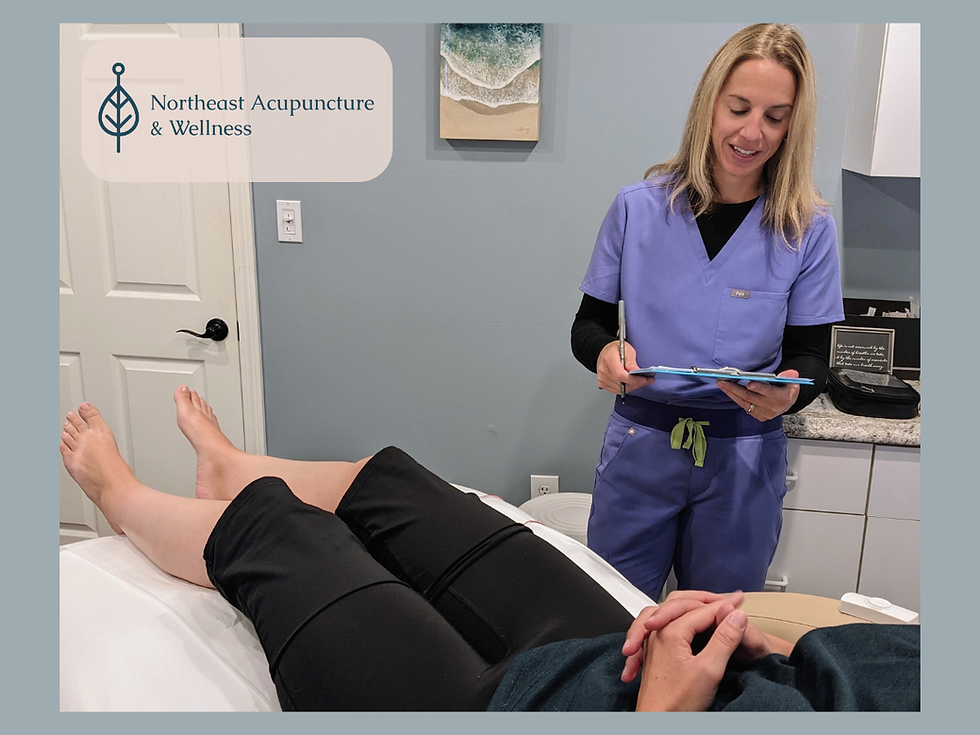Understanding Peripheral Neuropathy: A Guide to Managing Symptoms and Finding Hope
- Alyson Kramer
- May 28, 2024
- 3 min read
Updated: Nov 17, 2024

What is Peripheral Neuropathy?
Peripheral neuropathy is a condition that affects the peripheral nerves, which are the nerves outside of the brain and spinal cord. These nerves help send signals from the brain and spinal cord to the rest of the body. When there is damage or dysfunction of these nerves, it can lead to a variety of uncomfortable and sometimes painful symptoms typically in the hands and feet. Living with peripheral neuropathy can be challenging, but there are steps you can take to manage symptoms and improve your quality of life.
Who Does It Affect?
Peripheral neuropathy can affect anyone, but it is more common in older adults. People with certain health conditions, such as diabetes and those who have undergone chemotherapy, are at a higher risk. Peripheral neuropathy can also affect those who have experienced injuries, infections, or who have been exposed to toxins.
Common Causes of Peripheral Neuropathy
There are many causes of peripheral neuropathy, including:
Diabetes: High blood sugar levels can damage nerves over time.
Chemotherapy: Chemotherapy drugs can cause damage to the nerves that control sensation and movement.
Injuries: Trauma from accidents or surgeries can harm nerves.
Infections: Certain infections like shingles or Lyme disease can cause nerve damage.
Toxins: Exposure to harmful chemicals or heavy metals can affect the nerves.
Autoimmune Diseases: Conditions like lupus or rheumatoid arthritis can lead to nerve damage.
Symptoms of Peripheral Neuropathy
The symptoms of peripheral neuropathy can vary depending on the nerves affected. Typically symptoms are felt in the hands, feet or both.
Common symptoms include:
Numbness or Tingling: loss of feeling or “pins and needles” sensation
Burning Pain: Sharp, jabbing, or electric-like pain
Weakness: Muscle weakness in extremities
Sensitivity: Increased sensitivity to touch or temperature
Loss of Sensation: Total, partial or intermittently diminished ability to perceive sensations
Loss of Coordination: Difficulty with balance and coordination
Management and Treatment
Managing peripheral neuropathy often involves addressing the underlying cause and alleviating symptoms. Always discuss your care options with a qualified practitioner. Common treatments include:
Medications: Doctors may prescribe pain relievers and other medications to manage underlying medical conditions
Physical Therapy: Helps improve muscle strength and coordination
Lifestyle Changes: Healthy diet, regular exercise, and avoiding alcohol have been shown to help reduce painful symptoms
Complementary Therapies: Acupuncture, massage, and chiropractic care may also provide relief
How Acupuncture Can Help
Acupuncture is a traditional Chinese medicine practice that involves inserting thin needles into specific points on the body. It can help ease symptoms of peripheral neuropathy by:
Improving Blood Flow: Promotes better circulation to the affected areas
Reducing Pain: Modulates the transmission of pain signals along nerve pathways
Decreasing Inflammation: Helps reduce inflammation that can contribute to nerve pain
Enhancing Nerve Function: Supports nerve health and function
Providing Stress Relief: Stimulates the release of endorphins which promotes relaxation
Healthy Behaviors to Help Prevent Peripheral Neuropathy
While not all cases of peripheral neuropathy can be prevented, adopting healthy behaviors can reduce the risk:
Manage Blood Sugar Levels: Especially important for those with diabetes
Eat a Balanced Diet: Rich in vitamins and minerals that support nerve health
Exercise Regularly: Keeps blood flowing and muscles strong
Avoid Toxins: Stay away from harmful chemicals and limit alcohol consumption
Take Care of Your Feet: Especially if you have diabetes, regularly check for injuries or infections
Help is Within Reach
Peripheral neuropathy can be a challenging condition, but there is hope. At Northeast Acupuncture and Wellness, we are dedicated to helping you find relief and improve your quality of life. Our personalized acupuncture treatments are designed to address your specific symptoms and needs. Contact us today to schedule a consultation and take the first step towards feeling better. Your journey to wellness starts here!




